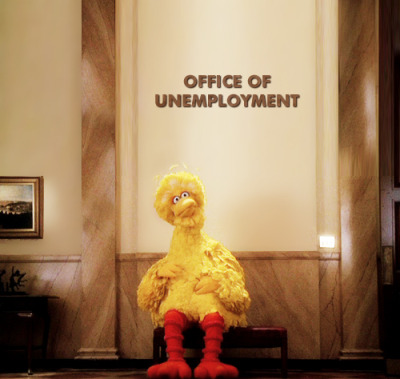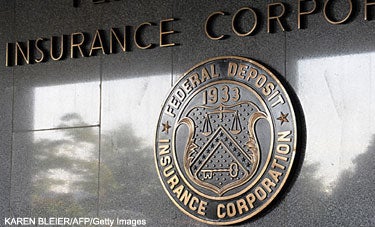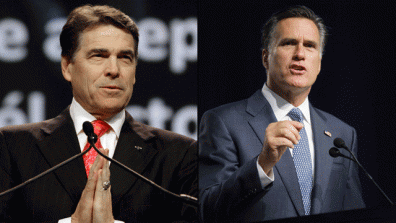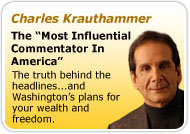Mitt Romney’s tax policy, corporate taxes, and (almost) everybody else’s
Following up on the last post, this time focusing on corporate rather than individual tax provisions–
As stated earlier ‘loophole’ is an elastic term, defined as well as anywhere by the free dictionary: “A way of escaping a difficulty, especially an omission or ambiguity in the wording of a contract or law that provides a means of evading compliance.” Broadly defined, tax loopholes are legal ways to escape paying taxes.
Simple question: What tax loopholes do large corporations benefit from most?
The answer is less quick than with the earlier post on loopholes for wealthy individuals and for individual tax returns. More tax loopholes and related tax devices are available to corporations than are available even to individuals of wealth. Corporations, after all, can bring more pressure to bear on legislatures and can push back more on regulatory agencies than even wealthy individuals can.
However, one quick answer up top is almost blinding in its simplicity: large corporations are allowed to declare ‘losses’ for tax purposes when they are over-all not suffering losses. Writing off costs is one thing. Cost, as we learned in high school economics, is the difference between gross (income/earnings) and net. Subtract your costs from your gross receipts, and you’ve got your profit. But writing off paper losses on bucketsful of money, on an over-all net gain for the company, is just avoiding taxes multiple times.
Shuffling income into and out of Ireland, and onto lovely islands, also helps large companies avoid taxes. In one of numerous examples, Bloomberg News reported in 2010 that Google cut its U.S. taxes by $3.1 billion over three years by moving money to Bermuda via Ireland and the Netherlands. Citing regulatory filings in six countries, the Bloomberg report estimates Google’s effective overseas tax rate at 2.4 percent. Google beat all its competitors at the game, a complicated but legal system of funneling money into and out of Irish subsidiaries and thence into known island tax havens. The maneuvers are so well known to tax accountants that they have their own comic-book gangster-style names–the ‘Double Irish’ and the ‘Dutch sandwich’.
It would be good to find out which corporate tax loopholes Mitt Romney would favor closing. Candidate Romney is fond of justifying lower taxes on capital gains by saying that that income has already been taxed, presumably meaning at the company level. It might be more accurate to say that the money being parked offshore, taxed at the lower capital gains rate, or otherwise tax-sheltered by wealthy individuals–company employees or former employees like Romney–is money that has already avoided taxation. (Romney has supported eliminating the capital gains tax altogether.)
In any case, Bloomberg cites an estimate that the United States Treasury loses $60 billion a year through these maneuvers. The key tactic here is known as “transfer pricing”, ” paper transactions among corporate subsidiaries that allow for allocating income to tax havens while attributing expenses to higher-tax countries.” Again, it would be good to know whether Romney favors eliminating transfer pricing for the purpose of allowing U.S. corporations to avoid U.S. taxes. Many of our candidates for office are fond of calling for simplifying and clarifying the tax code. Surely a more rational, more straightforward and clearer tax law would simply shut down the offshore tax havens–that is, simply disallow the claim of a post-office box and a brass plaque in the Caymans as a ‘subsidiary’, ‘branch’, ‘shell’ or any other (legal) division of a company for tax purposes.
Moving from Google to one of its chief competitors–
Reuters reported in 2011 that Microsoft reported only $445 million in taxes–U.S. and foreign–on $6.3 billion in profit, for fiscal fourth quarter. The way Microsoft worked this tax magic? Simple: “It is increasingly channeling earnings from sales to customers throughout the world through the low-tax havens of Ireland, Puerto Rico and Singapore.”
The tactic is deliberate; Microsoft increasingly has declared its earnings abroad, more and more, and in the U.S. less and less, over a period of years.
“The change is fueling its shrinking tax bills. According to its 2010 annual report, by keeping a good chunk of foreign earnings away from the U.S., Microsoft has accumulated $29.5 billion overseas–and that is before the impact of its last financial year.”
The non-profit USPIRG issued a report on tax havens this year. Keeping its recommendations short and sweet, the report urges, “Close corporate tax loopholes.”
Executive summary:
“Some U.S.-based multinational firms or individuals avoid paying U.S. taxes by transferring their earnings to tax haven countries with minimal or no taxes. These tax haven users benefit from their access to America’s markets, workforce, infrastructure and security; but they pay little or nothing for it—violating the basic fairness of the tax system and forcing other taxpayers to pick up the tab.
Even when tax haven abusers act perfectly legally, they force other Americans to shoulder the burden in a variety of ways. The taxes they don’t pay must be balanced by other Americans paying higher taxes, coping with cuts to public spending priorities, or increasing the federal debt.
Congressional studies conclude tax haven abuse costs the United States approximately $100 billion in tax revenues every year. Multinational corporations account for $60 billion and individuals the rest.” [emphasis in original]
Federal tax subsidies for corporations
Many of our worst candidates are also fond of talking about ‘entitlements’, usually referring to the supposed presumptuousness of the poor. The same candidates never mention corporate entitlements. As the non-profit Citizens for Tax Justice reported in 2011, more than half of all U.S. government subsidies go to only four industries—financial, utilities, telecommunications, and oil/gas/pipelines. From 2008 to 2010, 56 percent of all tax subsidies went to these four industries.
The sheer size of the subsidies is staggering. Wells Fargo topped the list with $17.9 billion in tax subsidies in 2008-2010 (p. 6, numbers given in millions). AT&T came in second with $14.5 billion in tax subsidies for the same period. Verizon third, GE fourth, IBM fifth, ExxonMobil sixth. Over-all, Citizens for Tax Justice studied earnings and taxes for 280 top companies and reported, “Tax subsidies for the 280 companies over the three years totaled a staggering $222.7 billion ($61.4 billion in 2008, $76.2 billion in 2009 and $85.1 billion in 2010).”
One result is that 37 top companies paid no federal income tax in 2010 (p. 18). These companies, be it noted, include major federal contractors such as GE and Boeing. In 2009, 49 top corporations paid no income tax, including Halliburton, Wells Fargo, GE and Verizon (p. 19). In 2008, 22 top corporations paid no income tax, including GE, Eli Lilly and Goldman Sachs (p. 20). Goldman, of course, suffered huge losses in the mortgage-derivatives debacle, and 2008 was a bad year.
2008 was not a bad year for the oil companies, however. This little-emphasized fact makes the extensive federal subsidies for Big Oil particularly galling. In Q3 2008, when everything else was hitting the fan, or about to hit the fan, ExxonMobil reported receiving the highest quarterly profit ever recorded by a U.S.company. As CNN reported at the time, “Exxon Mobil, (XOM, Fortune 500), the leadingU.S. oil company, said its third-quarter net profit was $14.83 billion, or $2.86 per share, up from $9.41 billion, or $1.70, a year earlier. That profit included $1.45 billion in special items.”
The company’s previous record had been the previous quarter. The $14 billion quarterly net came despite losses from Hurricane Ike and the Exxon Valdez oil spill.
“The company’s earnings were buoyed by oil prices, which reached record highs in the quarter before declining. Oil prices were trading at $140.97 a barrel at the beginning of the third quarter, and had fallen to $100.64 at the end.
“Compare that to 2007, when prices traded at $71.09 a barrel at the beginning of the third quarter, and rose to $81.66 by the end.”
Predictably, ExxonMobil continues to report record profits to the present day. The other oil majors are following suit.
Federal help for oil companies is quite the anomaly, to put it nicely.
- Astronomical profits for Big Oil do not typically pass along to the consumer. As company profits have risen, the price of gasoline at the pump has not declined proportionately. When ExxonMobil profits increased more than $5 BILLION in one year–an increase of 35 percent from one year to the next–gas prices did not decline 35 percent in the same year. The average price of gasoline, according to Department of Energy (DOE) statistics, went down about 22 cents in the same period, a price decline of less than 8 percent. Profit up by 35 percent, gasoline down 8 percent–and that’s without factoring in the cost to the nation of the then-decline in U.S. automobile sales, the consequent unemployment and decline in company benefits, and pressures on home mortgages from high fuel prices. The people who profit most from Big Oil’s relaxed tax burden, by the way, tend also to be the people who opposed the Obama administration’s rescuing the auto industry.
- Numerous reports have indicated by now that one of the big factors affecting the price of gasoline at the pump is not supply of crude oil, but speculation. Again, the same individuals and entities who opposed helping Detroit also oppose reining in speculation in commodities including fuel.
- Meanwhile, every statistical record also indicates thatU.S.consumers are reining in demand, as Americans curtail trip-taking and errand-running and turn to more fuel-efficient vehicles where they at all can do so. Thus, whatever the ‘law of supply and demand’ might seem to dictate, it has not dictated that a combination of record profits for the oil companies, falling demand by consumers, and lower price of crude oil bring about a concomitant decline in prices at the pump.
- What is said here about gasoline prices also pertains to the price of home heating fuel.
Any time the price of filling up the tank goes down–generally as a function of market vagaries including speculation–the decline tends to blunt public outrage over high fuel prices, overpaid CEOs, and astronomical oil company profits. However, public support for better use of energy resources including conservation measures, and public support for a windfall-profits tax for the oil companies, have trended upward.

Max Cleland
Unfortunately, this is one place we need real political leadership, and that takes courage. Former Sen. Max Cleland (D) of Georgia tried to bring about public awareness of high petroleum profits. Cleland even held a hearing on manipulation of prices in the transportation sector–a rarity in the Bush years, in Washington. Cleland’s reward? The petroleum industry poured record donations into the coffers of challenger Saxby Chambliss (R), who used some of the money on campaign ads linking Cleland–a decorated disabled Vietnam War vet–to Osama bin Laden.

Chambliss
It is useless to hope for improvement through, or from, the Republican Party. Republican candidates continue to campaign solemnly on promises to cut top tax rates, exhort their audiences to reduce the corporate tax rate, and talk about eliminating capital-gains and estate taxes. Herman Cain even wanted to substitute an across-the-board sales tax of 9 percent for progressive income tax rates. Their well-paid spokespersons in large media outlets—commentators like George Will and David Brooks—blamed the subprime mortgage debacle on poor people who bought bigger houses than they could afford. (Now they tend not to mention it.) The GOP heads in Congress, Boehner and McConnell, falsely characterize every regulation (safer mines, cleaner air) as ‘job-killing’. They also obstruct every effort to bring tax cheats to justice, or at least big-donor tax cheats, corporate as well as individual.
More potential questions for Mr. Romney as candidate. Perhaps tomorrow night’s televised debate will at least touch on some of these issues.




























